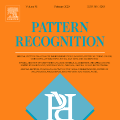Memristive systems and devices are potentially available for implementing reservoir computing (RC) systems applied to pattern recognition. However, the computational ability of memristive RC systems depends on intertwined factors such as system architectures and physical properties of memristive elements, which complicates identifying the key factor for system performance. Here we develop a simulation platform for RC with memristor device networks, which enables testing different system designs for performance improvement. Numerical simulations show that the memristor-network-based RC systems can yield high computational performance comparable to that of state-of-the-art methods in three time series classification tasks. We demonstrate that the excellent and robust computation under device-to-device variability can be achieved by appropriately setting network structures, nonlinearity of memristors, and pre/post-processing, which increases the potential for reliable computation with unreliable component devices. Our results contribute to an establishment of a design guide for memristive reservoirs toward a realization of energy-efficient machine learning hardware.
翻译:用于执行用于模式识别的储油层计算系统,可能存在模擬系统和设备,但用于实施用于模式识别的储油层计算系统(RC)的计算能力取决于诸如系统结构等相互交织的因素和内存元素的物理特性,这些因素使得确定系统性能的关键因素变得复杂。我们在这里开发了一个RC与记忆装置网络的模拟平台,以便测试不同的系统设计来改进性能。数字模拟表明,基于记忆网络的RC系统在三种时间序列分类任务中可产生与最先进的方法相类似的高计算性能。我们证明,通过适当设置网络结构、不线性模和前/后处理,可以实现在装置到装置的变异性下进行优强的计算,从而增加使用不可靠的元件装置进行可靠计算的可能性。我们的成果有助于为记忆库设计指南,以实现节能机器学习硬件。




